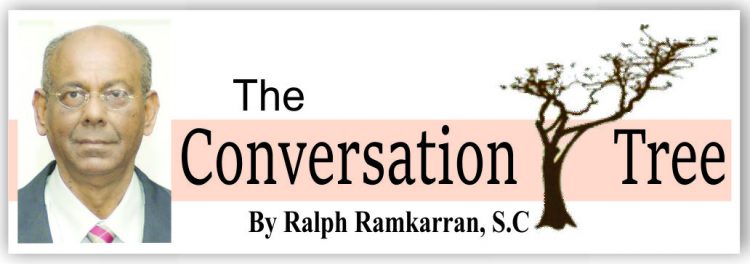
A biography, “A Revolutionary for Our Time” by Leo Zeilig, published in 2022, examines the roots of his radicalism and its development in the UK as a student, Tanzania, Jamaica, Tanzania again, in each case as a history lecturer at the Universities of Dar es Salaam and the West Indies, then its full application in Guyana, where the Board of Governors of the University of Guyana, to its eternal shame, denied him a lecturing job after the Faculty had offered him the position. His father was an activist of the old PPP and he, along with his brothers, assisted in pamphleteering. His early familiarity with anti-colonial, pro-socialist, sentiments facilitated a seamless transition to radical politics. His elder brother, Edward (Eddie), began an early association with the PPP, became a member and an activist, and has been a lifelong radical intellectual.
By the time Rodney arrived at the School of African and Oriental Studies, Frantz Fanon’s “Wretched of the Earth” had been already been published. No one who read this work, as Rodney would have done, could not have been affected by its searing vision. His already developed intellectual commitment to the ideology of the left, led him to the ‘study’ group led by C.L.R. James. By the time Rodney finished his studies, married to Patricia Rodney, his course was set. His creative Marxist application to problems of exploitation and development, and his unique polemical style was developed through his experience as an African, by the African condition, both historically and currently, and his knowledge of Africa.
With his commitment to Guyana and the Caribbean intact, he decided to return to the region by way of Africa. He headed to the University of Dar es Salaam in 1966 on a temporary basis. By the time he arrived in Jamaica, from which he was expelled in 1968, Rodney’s understanding of class politics, capitalist exploitation and imperialist depredations had been fully formed. His experience in Jamaica, engaging with the Rastafarian community and the poor, led to his work “The Groundings with my Brothers.” His academic work and political interventions in his first and second stints in Tanzania, the latter between 1968 and 1974, was that of a revolutionary Marxist academic and intellectual whose major interest was the liberation of Africa and African people from exploitation. His book, published in 1972, “How Europe Underdeveloped Africa,” was a major contributor to this effort.
Rodney’s stay in Tanzania gave him firsthand experience in the changing post-colonial, ideological and class environment in Tanzania, Africa generally and around the world, in their attempt to respond to the needs and demands of those impoverished by exploitation. Supportive at first of Ujamaa, the official economic policy of self-reliance that Tanzania announced in 1967, which would give autonomy from foreign support and investment, Rodney later rejected is as a petit bourgeois led development that would not end exploitation. Like in Guyana, which copied much of the philosophy behind Ujamaa, and deemed it “cooperative socialism” in the “Cooperative Republic of Guyana,” Ujamaa led to the development of a bureaucratic bourgeoisie which gained control both of the politics and the economy of both countries. He also eventually rejected “Black Power” because of its exclusivity to Africans. He later rejected Pan Africanism after it was taken over by African leaders with no commitment to African liberation.
In Guyana Rodney led the WPA to a close working relationship with the PPP, no doubt after internal resistance. The WPA brought new expectations, new faces to political leadership, a new language, a new style of work and heightened political, trade union and united mass activity of various kinds. But the PPP and the WPA, despite Rodney’s ideological commitment being substantially similar to that of the PPP, came from different political trends. Political competition in an electoral environment between the two led to tensions, which intensified after 1980. Rodney broader vision, supported by leaders like Clive Thomas, would have made a substantial difference in Guyana’s economic and political direction in the pre- and post-1992 periods. Walter Rodney’s family and Guyana lost grievously, but his life’s work embellished a glorious and memorable period in Guyana’s history when the Guyanese people stood up to oppression, inspired by many, including in prominent measure, by Walter Rodney.
(This column is reproduced with
permission from Ralph Ramkarran’s blog, www.conversationstree.gy)




